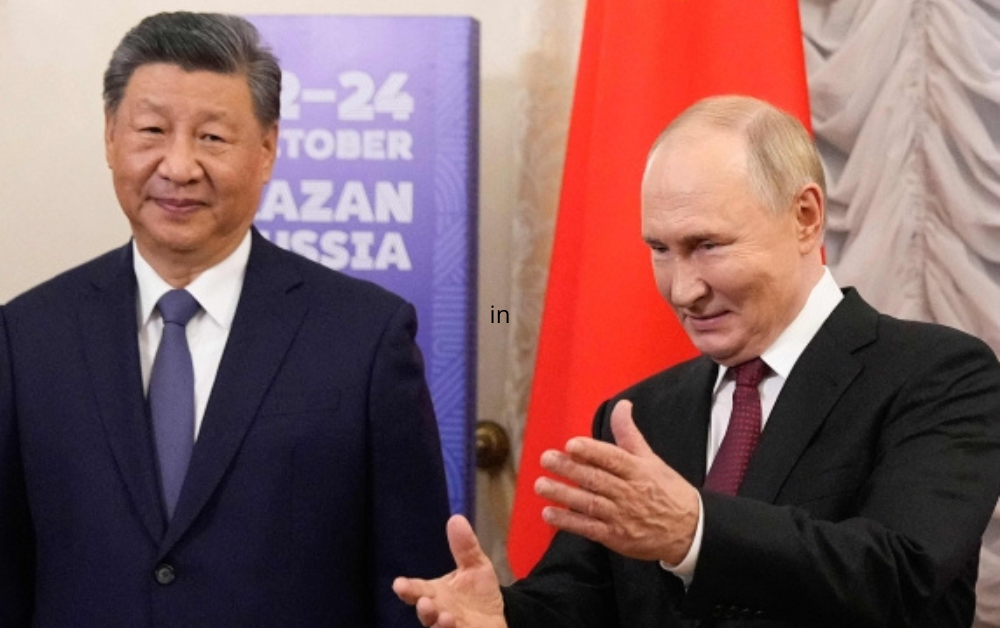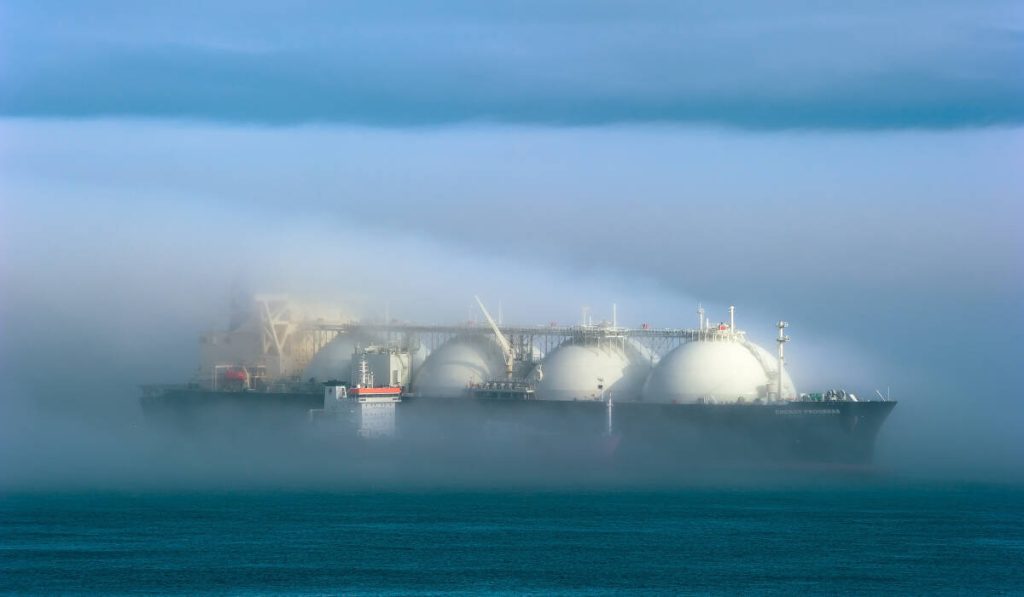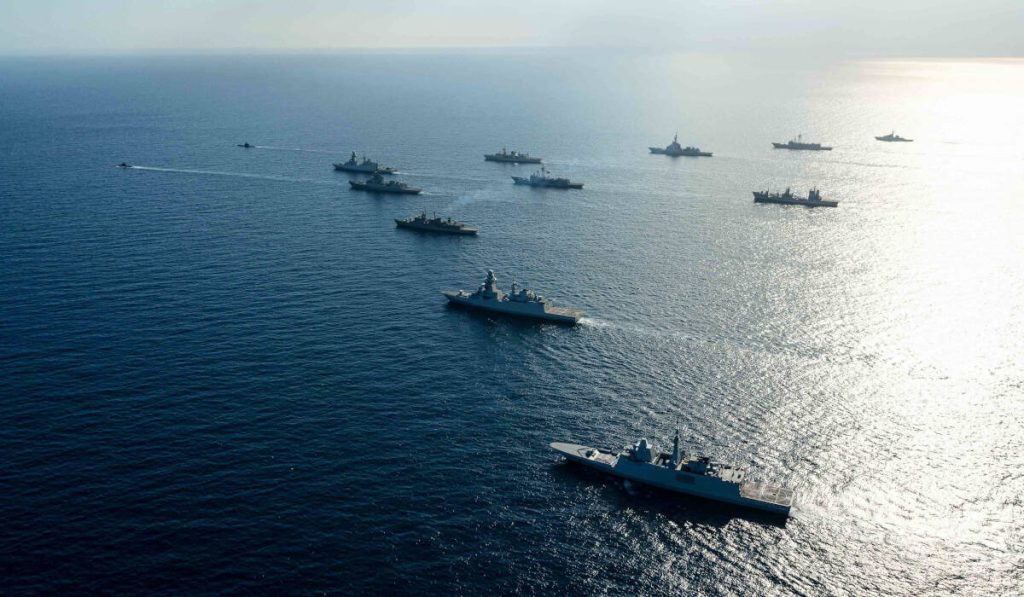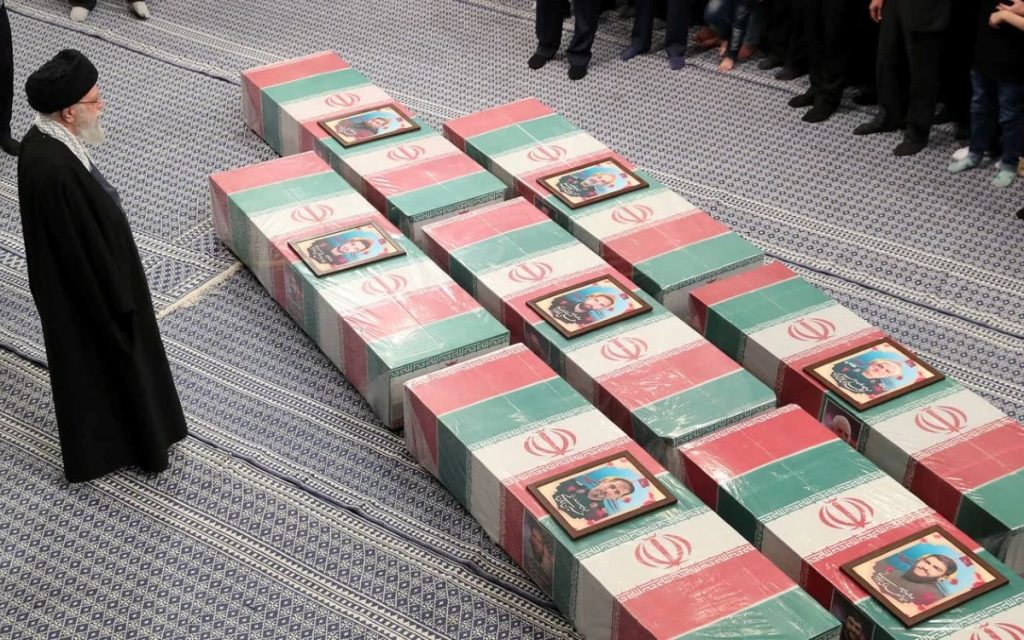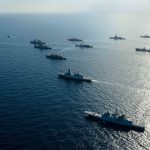An interesting article in Corriere della Sera, written by Danilo Taino, is dedicated to the annual meeting of the Shanghai Cooperation Organisation, which will take place on August 31 and September 1.
Corriere della Sera interprets this meeting as the clearest sign yet of the isolation of the United States.
“The trouble is that Trump will not be present on August 31 and September 1 in Tianjin, there will be no Americans, not even Europeans: only leaders of the so-called Global South, plus Vladimir Putin, plus UN Secretary-General António Guterres and many others to signal that American hegemony is fading,” writes Taino.
The U.S. and European attempt to isolate Russia has turned out to be a complete failure. For this reason, it is useful to analyze the trade flows linking the Russian Federation to some of its main global partners.
Bilateral trade between Russia and China in 2021 amounted to about 132 billion euros. In 2022, the year of the start of the Special Military Operation and the subsequent Western sanctions, which were supposed to lead to Russia’s financial collapse, there was instead a sharp increase: 172 billion euros, a growth of 29% compared to 2021. The expansion continued in 2023, reaching about 216 billion euros, with an increase of nearly 30% compared to the previous year. In 2024 trade reached 220 billion euros, and in the first six months of this year there is already a +8% compared to the same period in 2024, a trend that shows no sign of slowing down.
Even more significant, for those in the West who imagined Russia’s default, are the figures on trade with India. In less than four years bilateral trade rose from 11.7 to 62 billion euros: a 430% increase that reflects the growing interdependence between New Delhi and Moscow.
Figures that confirm the expansion of a now structural partnership, linked above all to India’s imports of Russian energy and fertilizers, but also to military supplies and new forms of technological cooperation.
The Corriere journalist does not cite these figures, preferring instead to use the SCO annual meeting to criticize Trump: “Xi will deliver a speech that promises to be relevant: he will criticize, perhaps without naming him, the American president, but in his heart he will thank him for the favor he does him by irritating the world.” The reference is evidently to the trade tariffs introduced by the current U.S. administration. An assessment that may be partly shared, but which, if isolated from the effect of sanctions against Russia, becomes a clumsy attempt to justify the sanction policy of the previous U.S. administration and the European Union.
If today the Global South, China, India, Russia and many other countries are converging towards a multipolar order, the reason lies not only in Trump’s tariff policy, but in a long season of unipolar policies and unbalanced relations that for decades have characterized the ties with the United States.
To confirm this dynamic, Corriere quotes the words of Chinese Vice Foreign Minister Liu Bin:
“In today’s world, old mentalities of hegemonism and power politics still have influence, with certain countries seeking to impose their interests on other countries, seriously threatening peace and stability.”
A clear message, without naming Trump, but understandable to all.
The Corriere article thus tends to criticize Trump’s policy, while downplaying the responsibility of Biden, the EU, Macron, Draghi, Meloni and other European leaders who supported the sanctions line. Yet the numbers speak for themselves. Trade between the European Union and China, in the same time frame, suffered a significant contraction: between 2022 and 2023 total trade fell by 13.1%. These are still very high absolute values, but a decline of this magnitude clearly indicates a shift towards an alternative market.
Moscow has found in Beijing a buyer willing to absorb large quantities of oil, gas and coal, often at discounted prices. In return, Russia has increased imports of cars, electronics and other Chinese consumer goods, creating a closer and increasingly strategic trade relationship.
For China, opening to the Russian market has a dual value. On the one hand it guarantees energy supplies on favorable terms, strengthening supply security. On the other hand, it fits into the broader geopolitical strategy of building economic ties with non-Western partners, reducing exposure to pressure from the United States and Europe.
China, however, has not replaced Europe with Russia. Trade with the EU remains more than three times higher than that with Moscow. Yet the direction is clear: Beijing is diversifying its relationships and Russia has become an increasingly important partner, especially in the energy sector.
The relative decline in trade with the EU and the steady growth with Russia indicate a rebalancing already underway. This is not a total change of course, but an adaptation to new international conditions: sanctions have pushed Russia towards Asia, and China has seized the opportunity to consolidate its position as the main alternative market to the Western bloc.
Again Corriere della Sera points out:
“The SCO was officially born in 2001 as a meeting of Asian countries on security issues, now it discusses a little bit of everything concerning international cooperation and the end-of-month meeting will be the most relevant since the organization’s existence: diplomacy in action at all levels, under the auspices of Beijing’s leadership.
In the shadow of this ‘Chinese’ framework, along with Xi will be Putin, Indian Prime Minister Narendra Modi (who had not gone to China for seven years), Iranian President Masoud Pezeshkian, it is not yet clear who will attend from Turkey, but there will be leaders from Malaysia, Indonesia, Vietnam, Belarus, Kazakhstan and others. It will be difficult to define the meeting as an ‘axis of evil’.
After the virtually certain diplomatic victory, Beijing will also flex its muscles: the September 3 military parade, for the 80th anniversary of the end of the Second World War in China, is announced as the largest ever presentation of Chinese military advances; at 360 degrees, air, sea and land. Trump and we Europeans will be able to watch it on TV.”
For EU leaders it will be the second time, after Alaska, that they will play the role not of secondary actors as is customary, nor of extras as often happens, but of mere spectators.
The isolation of the EU in the geopolitical and commercial landscape is now a fact.
In conclusion, if multipolarism and cooperation will be discussed in Tianjin, it is above all because trade flows have already changed the geography of world power. And it will certainly not be Western sanctions that reverse it.

